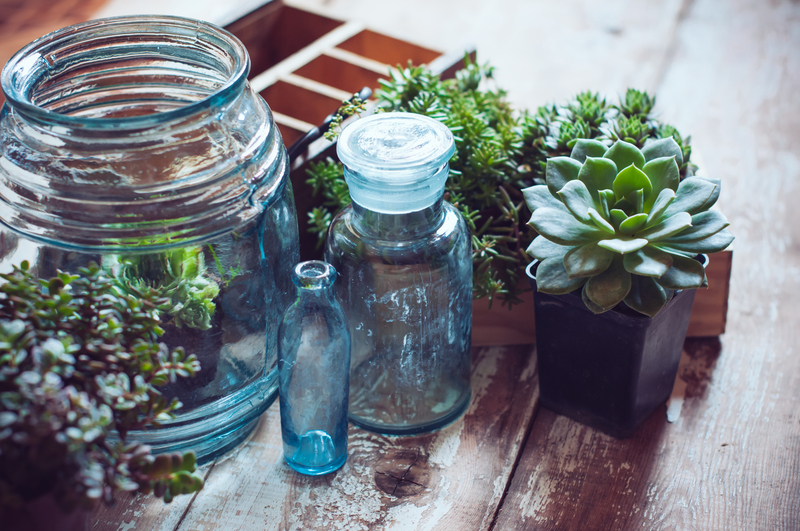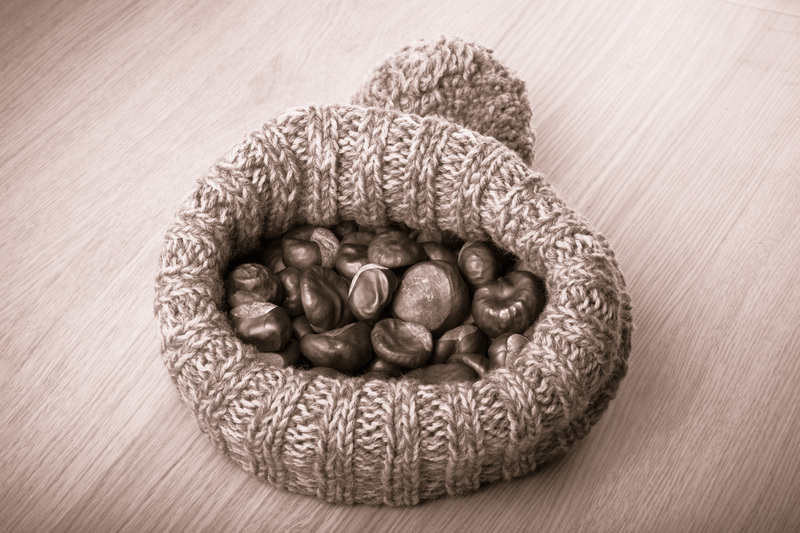Declutter Your Life: Hoarding Clean Up and Clutter Removal Made Simple
Are you feeling overwhelmed by the excessive stuff filling your home? Do you want to declutter your life and enjoy a more peaceful, organized environment? Whether you're tackling years of accumulated clutter or helping a loved one with hoarding clean up, this comprehensive guide will help you transform chaos into calm. In this article, we'll explore effective strategies for clutter removal, address the psychological side of hoarding, and provide actionable tips to keep your space tidy for good.
Understanding Hoarding and Clutter: The Root of the Problem
Before you embark on your decluttering journey, it's important to distinguish between simple mess and hoarding. Clutter is a common issue--piles of paperwork, overflowing closets, or a garage packed with forgotten belongings. Hoarding disorder, however, is more than just a messy home.
What Is Hoarding?
- Chronic difficulty discarding possessions: Hoarders struggle to part with items, even those with little or no value.
- Intense emotional attachment: Every item, regardless of usefulness, feels essential.
- Accumulation leading to distress: Belongings overwhelm living spaces, affecting hygiene, safety, and relationships.
If you or someone you know exhibits these behaviors, it may require specialized support. However, whether you're tackling severe hoarding or everyday clutter, many of the principles for clutter removal are the same.

Why Decluttering Matters: Benefits of a Clean Space
A clean, organized home offers numerous benefits, including:
- Reduced stress and anxiety: Less mess means a calmer mind.
- Improved productivity: An orderly environment leads to better focus and efficiency.
- Enhanced health and safety: Removing clutter reduces dust, mold, and tripping hazards.
- Greater sense of accomplishment: Completing the process boosts self-esteem and motivation.
Clutter removal isn't just about tidying your house--it's life-changing. You'll rediscover freedom, creativity, and the joy of living in a functional space.
The Step-By-Step Decluttering Process
Embarking on a hoarding clean up or even a routine declutter can be daunting, but with the right strategy, it's achievable. Here's how to get started:
1. Make a Plan and Set Goals
- Define your motivation: Are you preparing for a move, improving mental health, or seeking a fresh start?
- Set realistic goals: Tackle one room, closet, or category at a time.
- Establish deadlines: Create a timeline to stay accountable.
Having a clear vision makes clutter removal less overwhelming and gives you direction.
2. Gather Supplies
Stock up before starting your declutter project:
- Heavy-duty trash bags
- Boxes for donation, recycling, and items to keep
- Cleaning supplies (mop, vacuum, disinfectant, gloves)
- Storage bins and labels
3. Sort and Separate: The Three-Box Method
An effective strategy for hoarding clean up and everyday clutter removal is the Three-Box Method:
- Keep: Items you use regularly or value deeply.
- Donate/Sell: Things in good condition but not needed by you.
- Trash/Recycle: Broken, expired, or unusable items.
Tip: Work in small sections--one shelf, drawer, or pile at a time--to avoid feeling overwhelmed.
4. Be Ruthless, Yet Compassionate
Letting go can trigger strong emotions, especially during hoarding cleanup. If you're struggling, ask yourself:
- Have I used this in the past year?
- Does it serve a purpose or bring joy?
- Could someone else benefit from it?
It's okay to keep sentimental items, but set boundaries. Limit keepsakes to a small box or display them proudly, rather than hiding them away.
5. Organize and Rehome
Once you've sorted everything, organize what remains. Use clear storage bins, label everything, and assign items a designated home. Consider practical systems such as:
- Vertical storage for small spaces
- Drawer dividers and baskets
- Hooks and shelves for easy access
6. Deep Clean
After decluttering, give your space a thorough clean. Disinfect surfaces, vacuum, mop, and address any lingering odors. A clean environment makes clutter removal feel truly complete!
Room-By-Room Decluttering Tips
Each area of your home presents unique challenges. Here's how to handle them:
Decluttering the Kitchen
- Toss expired foods and spices.
- Donate unused gadgets and duplicates.
- Organize pantry with labeled containers.
- Keep counters clear for a calm workspace.
Living Room Clutter Removal
- Eliminate old magazines and papers.
- Corral remote controls and electronics in baskets.
- Rotate decor seasonally, store excess out of sight.
Bedroom Organization
- Sort clothing by season and donation needs.
- Store shoes and accessories in bins or racks.
- Limit bedding to what you need and use.
Bathroom and Linen Closet
- Dispose of expired medications and toiletries.
- Use shelf organizers for towels and personal items.
- Keep a manageable supply--donate excess.
Garage, Attic, and Basement Decluttering
- Sort tools and outdoor gear; donate or discard duplicates.
- Use sturdy storage bins and label everything clearly.
- Schedule regular cleanouts to avoid future build-up.
The Psychological Side of Hoarding Clean Up
Hoarding isn't just about stuff--it's about emotions. When approaching clutter removal for hoarding, empathy is key.
Tips for Supporting Loved Ones
- Be patient and non-judgmental: Avoid criticism or ultimatums.
- Encourage small steps: Tackle one area together at a time.
- Offer help or professional resources: Therapists and support groups are invaluable.
- Celebrate progress, not perfection: Every bag or box is a victory.
If your efforts stall or emotions run high, consider enlisting a professional organizer or hoarding clean up service. Experts can provide practical and emotional support, ensuring safety and respect during the process.
Declutter for Life: Maintenance and Prevention
Long-term success comes from building sustainable habits after your initial clutter removal effort:
1. One-In, One-Out Rule
For every new item you bring home, remove one similar item. This prevents clutter from creeping back in.
2. Develop Daily and Weekly Routines
- Spend 10 minutes each day putting items away.
- Address paper clutter weekly.
- Schedule quarterly reviews to pare down excess belongings.
3. Set Boundaries
If you tend to hold onto items "just in case," ask friends or family members to help you make objective decisions during future purges.
4. Embrace Minimalism (Your Own Way)
Minimalism isn't about bare surfaces--it's about ensuring everything you own serves a purpose or brings you joy. A clutter-free lifestyle is personal and practical.
When to Call in the Pros
Sometimes, hoarding clean up becomes unmanageable due to scale, health hazards, or emotional barriers. Consider contacting professionals if you encounter:
- Mold, pest, or biohazard issues
- Blocked exits or fire risks
- Conflicts with loved ones or neighbors
- Feeling stuck despite earnest effort
Professional clutter removal companies specializing in hoarding understand confidentiality, compassion, and safe disposal. They can provide expedited results and peace of mind for all involved.

Resources for Decluttering, Hoarding Help, and Inspiration
If you're seeking more tips, motivation, or crisis support, explore these resources:
- National Association of Productivity & Organizing Professionals - Find certified organizers near you.
- International OCD Foundation Hoarding Center - Research and support for hoarding disorder.
- Books: The Life-Changing Magic of Tidying Up by Marie Kondo; Buried in Treasures by David Tolin.
- Online support communities for decluttering challenges and accountability.
Conclusion: Take the First Step to Declutter Your Life Today
Decluttering your life isn't a one-time event--it's a journey toward freedom, clarity, and improved well-being. Whether you're facing a minor mess or a major hoarding challenge, remember: progress matters more than perfection. With the strategies outlined above, hoarding clean up and clutter removal can truly be made simple.
Start today--one drawer, one room, one box at a time--and enjoy the peace that comes when clutter no longer controls your life.
Frequently Asked Questions About Decluttering and Hoarding Clean Up
-
Is decluttering effective for mental health?
Yes! Studies show that removing clutter can reduce anxiety and depression, improve focus, and promote restful sleep. -
How do I help a hoarder reduce clutter?
Offer gentle support, focus on small wins, and encourage seeking professional guidance if needed. -
What should I do with items I no longer need?
Donate usable goods, recycle if possible, and responsibly dispose of trash or hazardous materials. -
How do I maintain a clutter-free home?
Adopt regular organizing habits, limit impulsive purchases, and periodically evaluate your belongings.
Ready to reclaim your space? Declutter your life with these simple steps and enjoy lasting clarity and comfort.